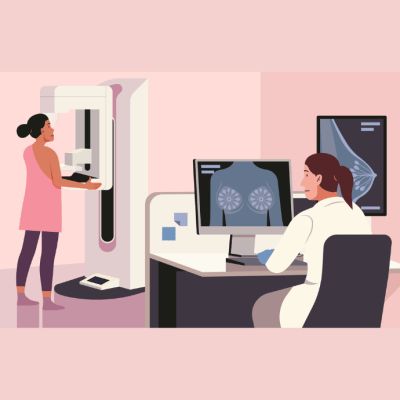Artificial intelligence (AI) holds promise for revolutionising healthcare by enhancing outcomes, patient safety, and accessibility while addressing workforce shortages and burnout. However, current efforts are insufficient due to issues like non-standardised health data and concerns about monitoring AI tools. The Future of Health (FOH), in collaboration with the Duke-Margolis Institute for Health Policy, identified four priority areas for action: improving data quality, establishing infrastructure for reliable AI development and evaluation, promoting data sharing, and offering incentives to drive AI progress in healthcare. A consensus of 46 senior healthcare leaders across 11 countries published in Nature Digital Medicine these recommendations to unlock AI's full potential in healthcare delivery.
Prioritising Data Quality for Effective AI in Healthcare
The accuracy and completeness of underlying data greatly impact the performance of AI algorithms in healthcare. To enhance data quality, the Future of Health (FOH) emphasises identifying and ensuring reliable availability of high-priority data elements crucial for effective AI applications. This includes data with predictive value, value to patients, and importance for performance analyses, including bias detection. Advocacy for policy incentives aligned with improving data availability and reliability is crucial. Initiatives like STANDING Together aim to standardise high-priority data elements globally. Policy incentives should include aligned payment incentives for data quality and safety measures, as well as standards focusing on reliability, completeness, and timeliness of data collection and sharing.
Ensuring Trust is Essential for AI Deployment in Healthcare
FOH members stress the critical need to demonstrate both the effectiveness and safety of AI tools within specific patient populations. They highlight the challenge posed by the variability in performance observed across different healthcare sites and over time. For instance, studies of the Epic Sepsis Model have revealed disparities in performance based on location and degradation over time due to data drift.
Real-world evaluations become particularly complex for algorithms employed in longer-term predictions or the prevention of complications, especially without a connected longitudinal data infrastructure. Therefore, health systems must prioritise the establishment of data standards and infrastructure that facilitate tasks such as algorithm retraining, local performance and bias testing, and scalability across the organisation for longer-term applications.
Efforts such as HealthAI and the Coalition for Health AI are actively working on developing consensus-based evaluation techniques and infrastructure for AI tools. Notably, HealthAI aims to build and certify validation mechanisms for nations and regions to adopt, while the Coalition for Health AI has plans to establish a US-wide network of health AI assurance labs. These initiatives, if successful, will aid manufacturers and health systems in meeting the requirements of emerging regulations like the EU AI Act and the 2023 US Executive Order on AI, which aim to ensure the trustworthiness of AI tools in healthcare.
Enhancing Data Interoperability and Privacy for Effective AI Deployment in Healthcare
High-quality internal data alone may not suffice for powering and evaluating all AI applications in healthcare. To develop truly effective predictive software for clinical care and support, data interoperability across health systems is crucial. FOH members advocate for connecting detailed encounter data with longitudinal outcomes and piloting initiatives across diverse populations and systems to ensure valid outcome evaluations and address potential confounding factors and population subgroup differences. South Africa's National Digital Health Strategy serves as a model, outlining interventions to improve digital technology adoption while complying with privacy regulations.
Leaders are urged to adopt policies simplifying data governance and sharing while protecting privacy, fostering trust with patients and the public. Privacy-preserving innovations like federated analyses and synthetic data can enable data sharing without moving protected information. Dynamic consent approaches may also be necessary, as patient data is analysed by numerous algorithms. Efforts should involve patients actively engaging with their data and understanding its use, exemplified by programmes like Understanding Patient Data in the UK.
Timely data access is emphasised. Health systems should collaborate to establish governance frameworks for data sharing, reducing time for data agreements. Trusted third-party data coordinating centres could facilitate precertification systems for data quality, testing, and cybersecurity, aiding health organisations in forming partnerships and accessing data efficiently.
Financial Incentives to Advance AI in Healthcare
The slow progress of AI tools and data quality initiatives in healthcare can be attributed to the lack of direct payment and the misalignment of financial incentives for high-quality data collection and predictive analytics. This affects the acquisition and safe implementation of commercial AI products as well as the development of in-house AI tools. FOH members recommend advocating for value-based payment models in healthcare, which prioritise quality, safety, improved health outcomes, and cost reduction for patients. This alignment of financial incentives encourages the acceleration of AI development, evaluation, and adoption, as well as the implementation of tools designed to enhance patient health and treatment effectiveness. Effective personalised healthcare relies on high-quality, standardized, interoperable datasets from diverse sources. In value-based payments, data play a crucial role in measuring care quality and patient outcomes, adjusting for external factors. Therefore, these payment models incentivize high-quality data collection, the development of effective AI tools, and ensuring their positive impact on patient outcomes and health system operations.
In healthcare, data has become the most valuable commodity, raising questions about whether there will be an AI "revolution" or "evolution" in healthcare delivery. While early AI applications in certain clinical areas show promise, more advanced tools will require higher quality, real-world data that is interoperable and secure. The actions taken by healthcare organisation leaders and policymakers in the coming years, particularly focusing on short-term opportunities to develop impactful AI applications that improve outcomes and reduce costs, will be crucial in shaping a future that enhances health outcomes, safety, affordability, and equity.
Source: npj Digital Medicine
Image Credit: iStock


















